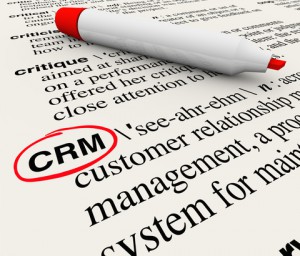4 Ways to Get More Value From Your CRM Implementation
I was participating in a roundtable discussion with several business owners the other day and the topic of CRM systems came up. Every single person at the table let out a unanimous groan and immediately commented on how difficult the systems were to manage. Even more troubling for the group was that they had not seen any real increase in sales as a result of implementing the CRM systems. I found this discussion to be very interesting because despite these businesses varying in size from a few million to hundreds of millions in revenue, I have had the exact same conversation with Fortune 500 sales executives.
I brought this conversation forward to my friend and collaborator, Joe Vance, to see what his experiences have been. Joe is an expert on CRM software and its implementation, so I thought that perhaps he had a different perspective. However, it turns out that what we’ve both found through experience is that many organizations have the misperception that implementing a CRM system alone will lead to improved sales results.
In actual practice, the mere implementation of a CRM system doesn’t lead to more sales. Nevertheless, by focusing on the following 4 principles, you can better leverage your CRM system to drive sales results:
- Put the right sales process in place: Many companies believe that implementing a CRM system will suddenly improve their sales process. If the process doesn’t work today, automating it won’t suddenly fix it tomorrow. Spend time before you implement your CRM system understanding your buyers’ journey and aligning the key selling activities with how your customers are buying. If you do it correctly, creating your sales process will provide a roadmap for your teams on turning opportunities into satisfied customers.
- Enable your sales teams to execute the process: Even a great sales process will fall flat if your sales reps don’t have the necessary skills to execute. So, once you have defined a sales process that aligns with your buyers’ journey, determine what skills your sales reps need to guide the buyer towards choosing to work with your company. Then, proactively focus on developing these skills through effective training and coaching.
- Coach to improve activities and results: CRM is often sold based upon its capability to provide greater insight and visibility into sales activities and results. But frequently there is a chasm between CRM-enabled coaching capabilities and any sort of sales coaching program. It’s as if coaches assume the self-serve dashboards and reports enabled by CRM will change behavior, so there is no need to coach. Nothing could be further from the truth. CRM must be a tool used by coaches as part of a formal, institutionalized coaching program that focuses on the process rather than after-the-fact results.
- Create value for the reps in using your CRM system: Sales reps don’t see value in entering data into CRM systems. However, best-in-class CRM implementations can create value via automated presentation of business intelligence that helps reps win deals – for example by auto-matching their opportunity to similar past opportunities, winning proposals, etc. The best CRM implementations enable collaboration; not just with internal users and cross-functional teams but also via engagement with customers, common interest communities, social and even customer support channels. Additionally, CRM should enable sales reps to prospect and import accounts and leads from external sources without having to leave the CRM interface. CRM adoption is maximized when it becomes a value-providing platform and certainly the primary, if not the only system used by sales reps. It can’t just be “yet another place to enter data.”
By applying these 4 principles, you can ensure that your investment in your CRM system will yield real business value and improved sales results! And if you think you can’t afford to do it correctly, ask yourself, “What are the costs of doing it incorrectly?”


